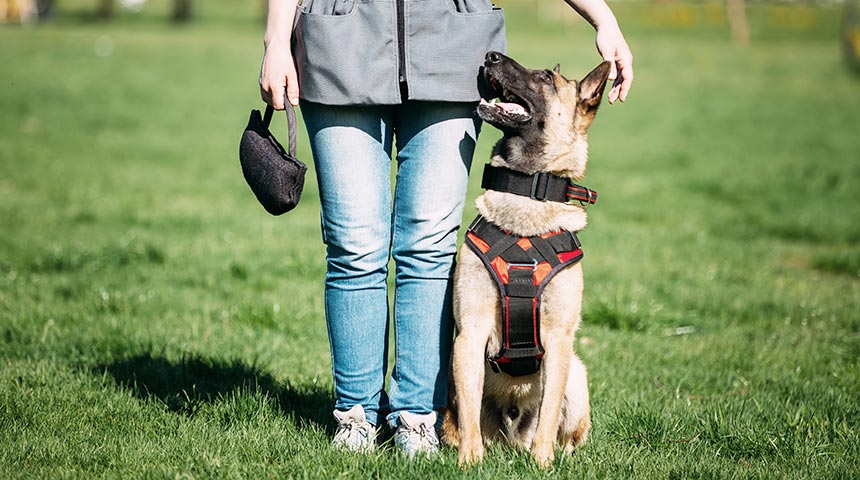
From birth, the puppy acquires certain behaviours. In fact, during the first three or four months of its life, it is particularly receptive to any form of education. Are you wondering if it’s really necessary to take a class with your puppy? The answer is yes.
Why take a kindergarten class with your puppy?
Between the ages of 4 and 16 weeks, the puppy goes through a vital period known as the socialization phase. It is during this period that he becomes familiar with his environment. Humans, sounds, smells, plants, other animals, indoors, outdoors, everything is to discover! The socialization phase is both exciting and critical because this is the period when the puppy develops his confidence and learns good behaviour or, on the contrary, he develops unwanted behaviours and fears that will be difficult to eliminate afterwards.
The puppy kindergarten class helps preventing mistakes in your puppy's education. In addition, it is an excellent way to get your dog to interact properly with other dogs and people. Behavioural deficiencies are corrected on the spot by a dog trainer who will guide you in a professional manner.
What is covered in a typical class?
The contents of a puppy kindergarten class can be different from one place to another, but generally include the following:
- Positive reinforcement training techniques
- Hygiene training
- Canine language
- Basic dog health
- Canine psychology
- Socialization with humans and animals
- Prevention of undesirable behaviours (biting, chewing, jumping, etc.)
- An introduction to basic obedience (sit, stay, lie-down, etc.).
For proper and effective individual monitoring, group courses rarely host more than 6 to 8 puppies at a time.
Start off right!
The puppy kindergarten class puts the best chances on your side. By taking time to train your puppy from the start, you will help him feel happy, balanced and safe. Believe us, you’ll be glad you did!

